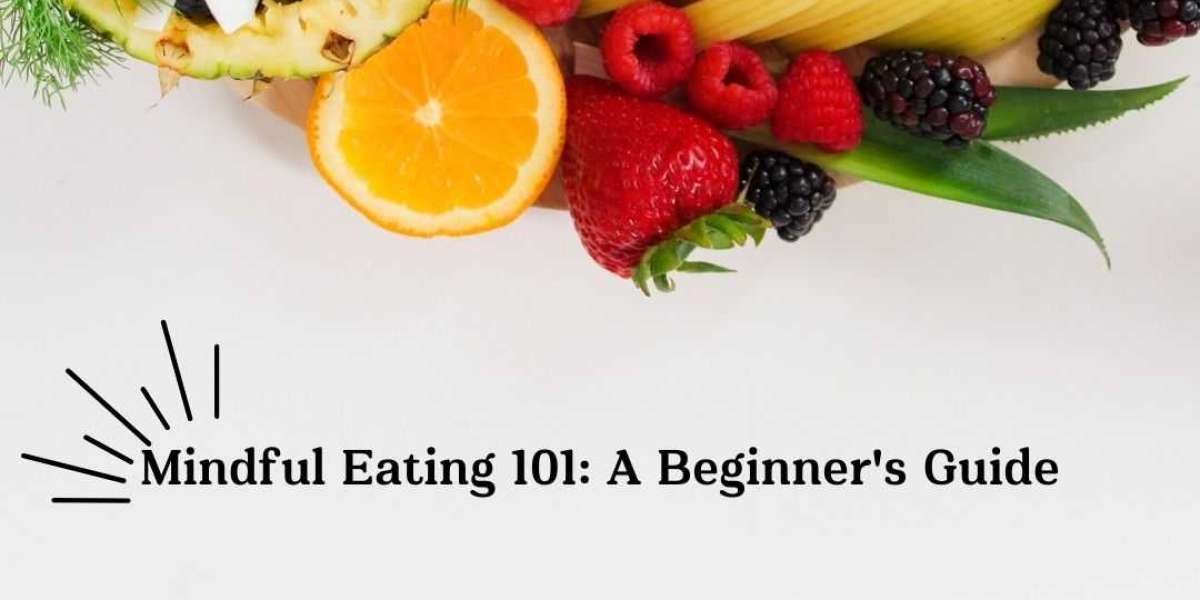Weight LossHere's where mindful eating comes in. It's a practice that can transform your relationship with food, fostering a sense of awareness and appreciation for the act of eating itself.
What is Mindful Eating?
Mindful eating is the practice of paying close attention to the present moment while you're eating. It involves slowing down, savoring your food, and tuning into your body's hunger and fullness cues – all without judgment.
Instead of mindlessly shoveling food down your throat, mindful eating encourages you to engage all your senses. You become aware of the sight, smell, taste, texture, and even sound of your food. This heightened awareness allows you to appreciate the experience of eating on a whole new level.
Why Should You Try Mindful Eating?
There are numerous benefits to incorporating mindful eating into your routine. Here are just a few:
- Improved Digestion: When you eat slowly and chew your food thoroughly, your body can break down food properly, leading to better digestion and nutrient absorption.
- Weight Loss: Mindful eating can help you lose or maintain a healthy weight. By paying attention to your hunger and fullness cues, you're less likely to overeat.
- Reduced Stress: Eating mindfully can be a form of stress reduction. By focusing on the present moment and the experience of eating, you can take a break from daily worries and anxieties.
- Improved Relationship with Food: Mindful eating helps you develop a more positive and balanced relationship with food. It allows you to appreciate food for what it is – nourishment for your body – rather than using it as a coping mechanism for emotions.
Mindful Eating and Weight Loss
Many people turn to mindful eating to help them lose weight. While mindful eating doesn't guarantee weight loss, it can be a powerful tool in your weight loss journey. Here's how:
- Reduced Mindless Snacking: Mindful eating helps distinguish between true and emotional hunger. You learn to identify cravings and boredom eating, allowing you to make conscious choices about when and what to eat.
- Portion Control: By paying close attention to the taste and texture of your food, you become more satisfied with smaller portions. Eating slowly also allows your body time to register fullness cues, preventing overeating.
- Improved Food Choices: When genuinely present while eating, you savor healthy, nutritious foods. You become more mindful of how different foods make you feel, leading you to gravitate towards nourishing choices.
Mindful Eating and Binge Eating
Binge eating is a common disorder characterized by uncontrolled eating episodes. Mindful eating can be a valuable tool for managing binge eating. Here's why:
- Identifying Triggers: Mindful eating helps you identify the emotional triggers that lead to binge eating. By becoming more aware of your feelings and thought patterns, you can learn to cope healthier.
- Breaking the Cycle: Mindful eating can help you break the cycle of restrictive dieting and binge eating. You can develop a more balanced relationship with food by listening to your body's hunger cues and eating intuitively.
Mindful Eating and Unhealthy Eating Behaviors
Mindful eating can address a variety of unhealthy eating behaviors, including:
- Emotional Eating: Many people use food to cope with negative emotions like stress, anxiety, or boredom. Mindful eating helps you identify these emotional triggers and develop healthier coping mechanisms.
- Distracted Eating: Eating while watching TV, working on your computer, or scrolling through your phone can lead to overeating. Mindful eating encourages you to create a distraction-free environment for meals, allowing you to focus on the act of eating itself.
- Fast Eating: Eating fast makes you more likely to overeat before your body has time to register fullness cues. Mindful eating teaches you to slow down and savor your food, preventing overconsumption.
How to Practice Mindful Eating:
Mindful eating is a skill that takes practice. Here are a few tips to get you started:
- Create a Calm Environment: Find a quiet place to eat where you won't be interrupted. Turn off the TV, put your phone away, and avoid distractions.
- Take a Few Deep Breaths: Before eating, take a few deep breaths to center yourself and bring your attention to the present.
- Engage Your Senses: Take a moment to appreciate your food's sight, smell, and presentation. Notice the colors, textures, and aromas.
- Savor Each Bite: Take small bites and chew your food thoroughly, paying attention to the taste and texture of each chew.
- Put Down Your Utensils: Put your fork or spoon between bites. This helps you slow down and savor your food, allowing you to notice fullness cues.
- Check-in with Yourself: As you eat, periodically check in with your body. Ask yourself if you're still hungry or starting to feel satisfied.
- Stop When You're Full: It's okay to leave food on your plate. Only force yourself to finish some things if you're no longer hungry.
- Be Patient: Developing mindful eating skills takes time and practice. Be patient, and don't get discouraged if you slip up. Just start again at the next meal.
Mindful Eating is a Journey
Mindful eating is not a quick fix or a fad diet. It's a journey of self-discovery and a way to cultivate a healthier relationship with food. By incorporating these practices into your routine, you can reap the many benefits of mindful eating, including improved weight management, reduced stress, and a more joyful approach to eating.







